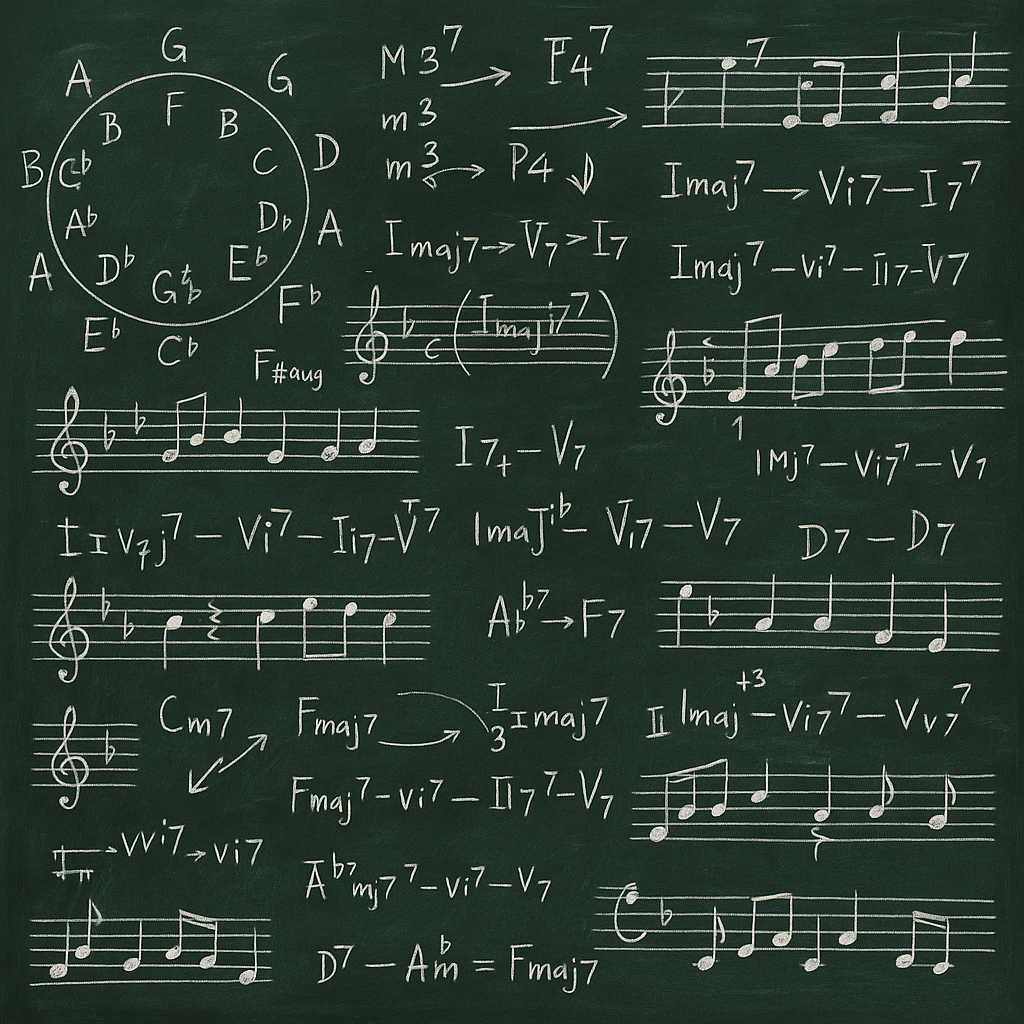Understanding Music Changes Everything
I mean that—deeply. Understanding music won’t just make you a better player or listener. It will show you how to trigger emotion with your playing. It will reveal the mathematical beauty hidden in the patterns of every song you’ve ever loved. I don’t say this lightly: learning how music works changes the way you see and hear the world. I can’t overstate it. It’s that powerful.
So…If you’re an adult who’s always wanted to learn piano—or you played years ago but feel like you never quite got it—you’re not alone.
And it’s not just ‘piano’ that I am talking about. We’re exploring MUSIC here.
Maybe you’re a guitar player. I meet a lot of folks who picked up the guitar as a teenager, followed some tabs, maybe learned a few cool-sounding chords, but never really connected the dots. They can play, but they don’t quite understand what they’re playing.
That’s where I come in.
I teach music a little differently. I focus on understanding music from the inside out. Through the lens of harmony, structure, and function. Because once you understand how music works, everything changes.
If you’ve never touched an instrument before, no worries. If you’re rusty, that’s okay too. I’m not promising to turn you into a virtuoso overnight (and if anyone is, run…quickly!). What I do promise is that you’ll start to see the beauty of how music fits together. And that’s a very addicting kind of knowledge. Trust me, I’ve been fascinated by it for 40 years.
Here’s the journey we’d take:
Ultimate Beginner
– Learn the notes on the keyboard
– Get comfortable with intervals, note names, and fingering
– Understand the building blocks
Beginner
– Learn major scale patterns and how they relate to the circle of 5ths
– Understand how major and minor chords are structured
– Explore diatonic harmony
– Start playing real songs using number language (What’s a 2-5-1 progression? A 1-6-2-5-1?)
– Learn chord inversions and how to add color with 7ths, 9ths, and more
– Start hearing how songs are built
Intermediate
– Embellish and arrange songs
– Improvise melodies and simple solos, understand the modes (yes, they are important)
– Explore harmony outside the diatonic system
– Start writing and composing your own music
From here, it’s your call where we go. I can help you chase the goals that matter to you—whether that’s playing at home, writing original music, or finally understanding what your favorite songs are doing under the hood.
Understanding harmony and function won’t just help you play better—it’ll unlock a deeper appreciation for music itself. You won’t just memorize songs. You’ll understand why they work.
And that understanding? That’s the reward. There’s no final destination in music. Like that quote says, “You don’t start a dance with the purpose of ending up at a specific place on the floor.” The joy is in the movement. In the learning. In the playing.
So if you're an adult in the Raleigh area looking for piano lessons, and you're ready to learn how music works—not just how to press the right keys—I’d love to help. All it takes is a little practice.
And practice? Well, that’s just another word for play, right?
This is an AI image.
While it reflects some of the things you’ll see in music, not much of it is ‘real’.
That circle of notes? The is meant to look like the circle of 5ths. A huge concept in understanding music.
Those roman numerals with numbers…well…they aren’t ‘real’ either, but we do often notate chords with numbers and it shouldn’t be intimidating.
Let’s study together and grow your understanding of music, harmony, composition, and notation.
